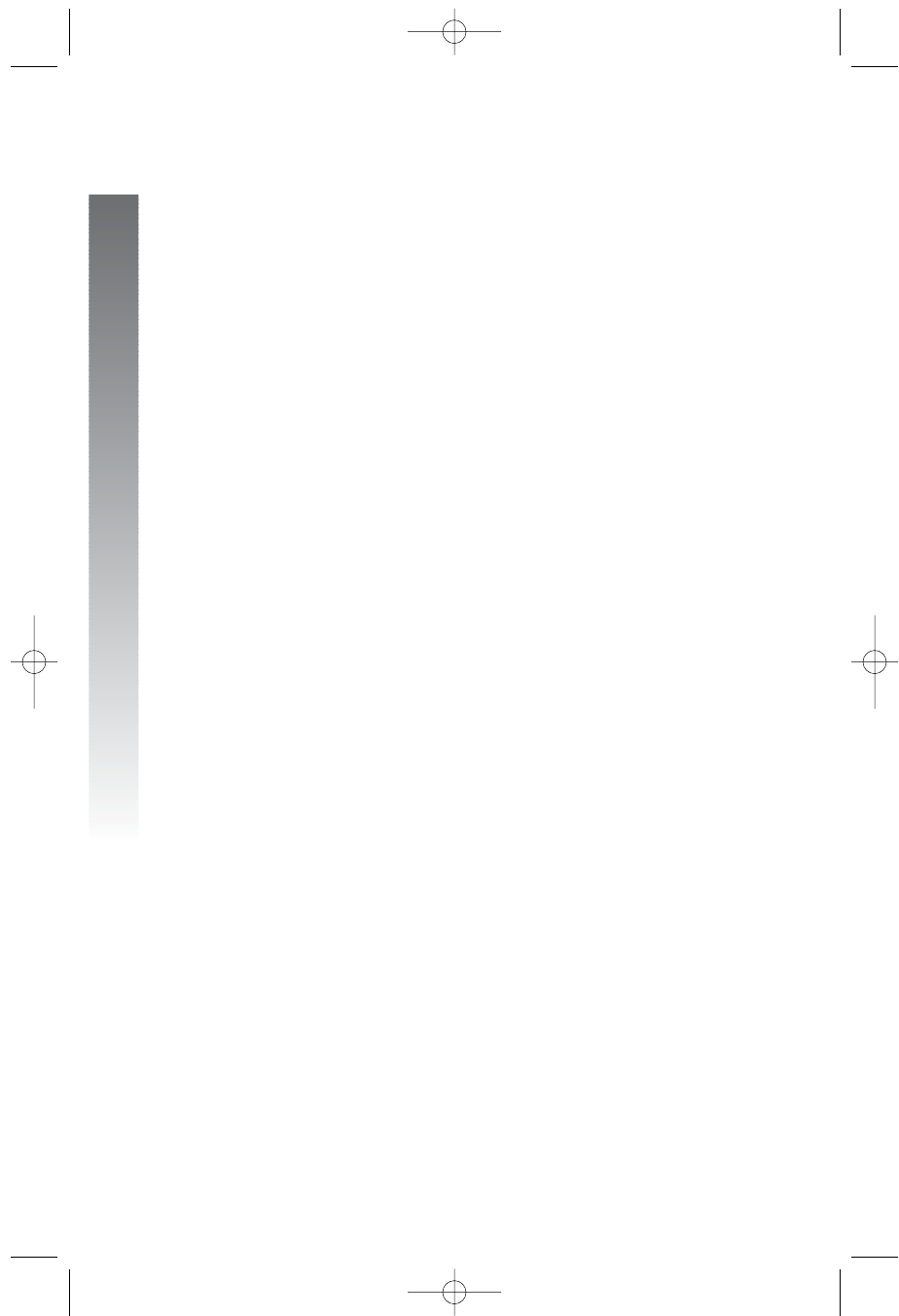
Before you begin
Before you begin
DSL users
Connecting a DSL line to L1/L2 may interfere with the advanced features of
this telephone, (such as intercom, hold, and line privacy,) which work by
sending data signals over line 1. These data signals are sent at some of the
same frequencies as those used by your DSL service.
Also, DSL lines usually have microfilters, which keep the DSL signals from
interfering with your telephone's sound quality. These same microfilters will
also block the data signals that this telephone system uses to support some
telephone system features. Therefore, the advanced features of this phone
may not work properly when DSL microfilters are installed on L1/L2 of your
phone system. However, you can use a DSL splitter to prevent these
problems.
For only one or two DSL lines, install it/them into L3/L4 on the back
of the phone.
If your system will only use two or three phone lines, plug a single non-DSL
telephone line into L1/L2. (Turn off the L2 line usage lights.) Be sure to use
the microfilter(s,) which were probably provided when DSL was installed, on
lines 3 and/or 4 if the lines have DSL, to protect the sound quality.
If you have two telephone lines, one of which is DSL, which both appear at a
single wall jack, use a Triplex adapter to separate the lines at the wall jack.
Call 1 (800) 222-3111 if you need help doing this.
If you must install a DSL line into L1/L2 on the back of the phone,
use a DSL splitter.
Lines 1 and 2 share a telephone jack, so if you need to install a DSL line for
telephone line 1 or line 2, you will need additional equipment to avoid
interference. Any telephone line connected to L1/L2 cannot have a
microfilter. It must have a DSL splitter. Use a dual line DSL splitter or a
two-line DSL filter. Call 1 (800) 222-3111 if you need help doing this.
Installation, by your DSL service provider or other professional, of a DSL
splitter (not a microfilter) as close as possible to the protection block or
network interface (where the telephone line enters the house) may resolve
DSL interference. (It may be necessary to use a DSL splitter intended for
outdoor use.) A DSL splitter allows the data and voice signals to use the
same telephone line without interfering with each other.
AT&T cannot supply the DSL splitter. Please contact your DSL service
provider or professional contractor for details about obtaining and installing
a DSL splitter. Your DSL service provider may require you to bear any
installation costs. AT&T and the manufacturer of this product have no
affiliation with your DSL provider and the type or quality of services they
offer. Installation must be performed at your own expense and AT&T cannot
troubleshoot or provide installation support.
4
984CIB_(Rev3)28.04.06 4/28/06 6:28 PM Page 4


















